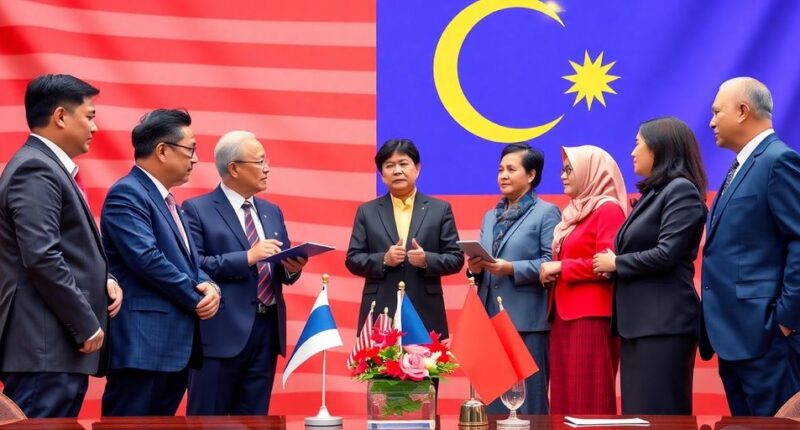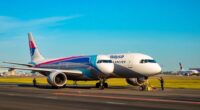Malaysia is poised to enhance its international relations and diplomacy as it prepares to assume the ASEAN chairmanship next year. The country aims to address pressing issues, particularly in the South China Sea, while fostering stronger ties with the Global South and promoting economic growth within the ASEAN region.
Key Takeaways
- Malaysia will address South China Sea disputes as ASEAN chair.
- The country emphasizes diplomatic resolutions and maritime security.
- Malaysia's engagement with BRICS is seen as a strategic move.
- Prime Minister Anwar Ibrahim highlights Malaysia's peaceful and dynamic image in ASEAN.
Malaysia's Commitment to Maritime Security
As Malaysia prepares to take on the ASEAN chairmanship, Deputy Foreign Minister Datuk Mohamad Alamin has reiterated the country's commitment to resolving disputes in the South China Sea through diplomatic channels. He emphasized the importance of safeguarding maritime security and protecting Malaysia's sovereignty, particularly concerning intrusions at Beting Patinggi Ali in Sarawak.
- Diplomatic Channels: Malaysia will utilize appropriate forums to address maritime disputes.
- Protest Notes: The Foreign Ministry consistently issues protest notes to nations encroaching on Malaysian waters.
- ASEAN-China Dialogue: Malaysia is co-chairing the fourth ASEAN-China Joint Working Group meeting to finalize the Code of Conduct for the South China Sea.
Strengthening Ties with the Global South
Cuban Ambassador to Malaysia, Florentino Batista Gonzalez, praised Prime Minister Anwar Ibrahim's foreign policy initiatives aimed at strengthening ties with the Global South. He described Malaysia's engagement with BRICS as a necessary and forward-looking strategy that fosters collaboration among developing nations.
- South-South Cooperation: Emphasizing the need for collective efforts to address shared challenges such as poverty and tropical diseases.
- Leadership Role: Malaysia's leadership in ASEAN is recognized as a bridge to Latin America, enhancing trade and human capital exchange.
- Balanced Foreign Relations: Malaysia's approach to foreign relations is seen as genuine and beneficial for its citizens and economy.
Malaysia's Image in the ASEAN Region
Prime Minister Anwar Ibrahim highlighted Malaysia's reputation as one of the most peaceful and economically dynamic nations in ASEAN. This perception was reinforced during his recent visits to several countries, where leaders acknowledged Malaysia's multi-racial and multi-religious society.
- Model Nation: Malaysia is viewed as a model for unity and peace despite its diverse population.
- Economic Growth: The country is recognized as one of the fastest-growing economies in the region.
- Preserving Peace: Anwar urged citizens to protect the nation's peace and unity while striving for excellence.
Conclusion
As Malaysia steps into a pivotal role in ASEAN, its commitment to addressing regional disputes, fostering international cooperation, and promoting economic growth will be crucial. The country's proactive approach to diplomacy and its strategic initiatives with the Global South position it as a key player in the evolving landscape of international relations.

